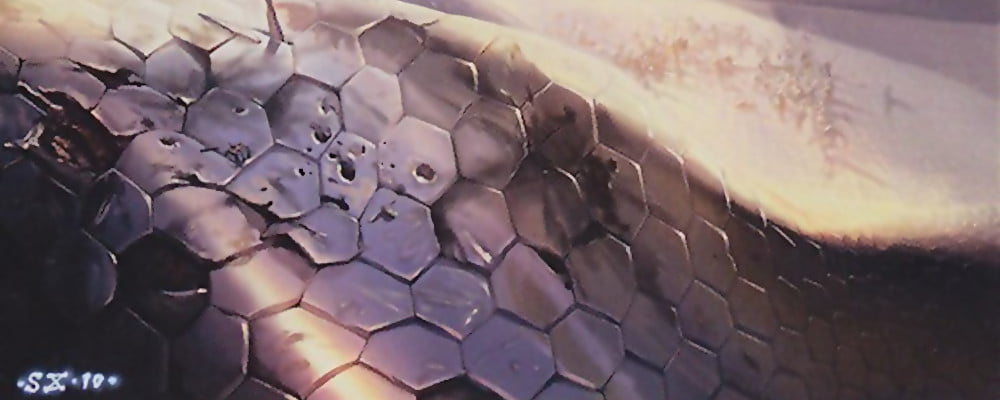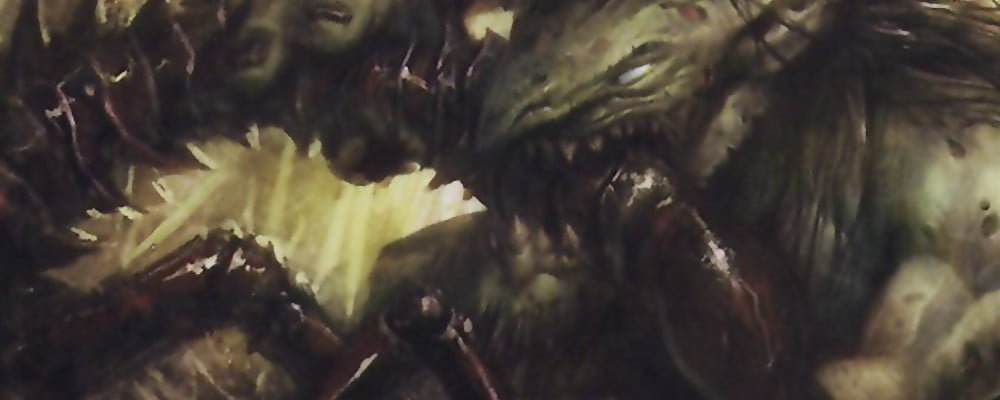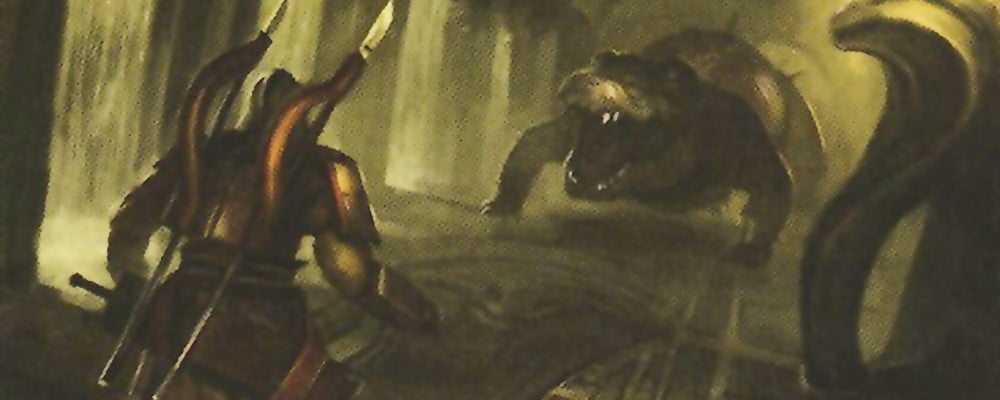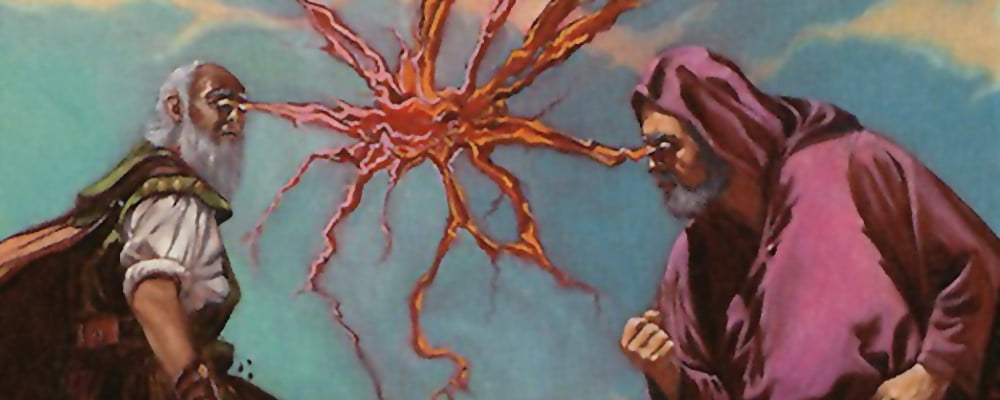Everyone plays Magic in their own way. The game serves as a platform for players to find one another, but even the people who engage with that platform in ways that seem the same are still approaching it in different ways. Players are simply too complex, motivations to play are too varied, and the game itself is too complicated for two players to sit down and truly want and expect the exact same thing out of the game as they play, and formats and rules and social responsiveness are tools we have to make sure people are at least engaging with one another on a reasonably equal level. The utility of the game is that the game sets rules and boundaries that players can use to meaningfully communicate their own parameters, making it easier to dial into what they want out of the experience.
Knowing that, it’s got to be rough to be into Competitive Commander, or, as it’s known, CEDH.

In case you weren’t aware, CEDH is the idea of a commander deck (formerly most commonly known as Elder Dragon Highlander), that is built with an intention to win as optimally as possible. This may sound to you like an absurdity, like, isn’t everyone trying to win? CEDH takes that to its logical conclusion: The cards put into CEDH decks are intentionally chosen in order to close games out as quickly as possible; cards are not chosen based on giving players a sporting chance or budgetary concerns. As an eternal format with access to the vintage cardpool, high variance 100-card decks, Commander is a format that has a lot of really broken things a deck can do if it chooses to do them.
CEDH does have some specific requirements though that stop it from being just a pure vintage format. First, the fast mana is limited. Commander is a world with clunky second-tier moxen and lotuses, but the absolute power 9 of fast mana aren’t around. Second, decks have a commander, a guaranteed card in hand every game that also limits the cards you can cast. Third, as a singleton format, you just inherently have a less reliable deck most of the time. That cuts both ways – not only are combos less redundant, but so are the ways to interrupt combo, as there are only so many useful counterspell effects. Finally, and probably the biggest, CEDH is a multiplayer environment with a base life total of 40 per player, so the most optimal ways to deal damage have nothing at all to do with attacking and reducing life totals – over time, the format progresses to strategies that win the game, on the spot, by some alternate means.

There’s a vision of Magic as a game with inherently archetypal structures of decks – aggro, combo and control was the big three, once upon a time. Then we got newer terms like tempo and midrange. You’ll typically see these archetypes described as a sort of triangle map, like paper rock scissors, or sometimes a competing five-pointed star. These sorts of maps break down in CEDH. In CEDH, aggro kinda doesn’t exist – oh, sure, some people will argue about it, but I think they’re kidding themselves.
CEDH is not a format of this triangle or star arrangement. It isn’t a matter of deck types preying on one another. Rather, CEDH is a polarity between two points: How much of a control deck you are vs how much of a combo deck you are. Every deck wants to have a combo finisher, you want a deterministic combo finish, and that’s that. The common end point for a lot of decks these days is some combination of [mtg_card]Thassa’s Oracle[/mtg_card] / [mtg_card]Lab Maniac[/mtg_card] / [mtg_card]Jace, Wielder of Mysteries[/mtg_card] and some other card that gets rid of your library cheaply – often [mtg_card]Demonic Consultation[/mtg_card]. This isn’t to say these are the only ways to win the game in that format, but they are definitely common enough that decks need a way to answer that, or replicate that.

Now, this may sound really interesting and thrilling to you – a table of five people, all trying to hastily construct a nuclear device as quickly as possible but also managing to do it as safely as they can. I don’t want to make it sound like CEDH players are bad or playing a bad format – though I do think they’re playing a format that’s always going to have some problems to it. It’s not the lack of deck diversity per se – indeed, a world where everyone is playing some variety of combo deck and everyone is trying to deal with other people’s combo decks is not an inherently uninteresting format. Any competitive environment is going to steadily exclude every card that doesn’t reach a certain power standard – as environments refine around a single goal, the options become limited. That’s okay.
Particularly, I think CEDH is a format that will always be poisoned by the presence of these powerful combos pulling players towards a minmal number of viable commanders. If your deck relies heavily on combos that have nothing to do with your commander, then the question becomes ‘why am I playing this and not some other highlander format.’ If the commander does not present an interesting element of deck construction, is there any value to playing commander as a format?
 There is another problem that CEDH has, which is the absence of oversight. Commander is overseen by a small group of rules experts and high level judges, but their interest is in maintaining a casual environment where people get to play with as many of their fun and goofy cards as possible. The ban list therefore does not reflect a competitive environment or a vision of a critical turn – it’s about banning cards to make sure there’s a healthy, interesting casual environment that gives people signposts for what kind of things they shouldn’t be trying to do with their decks. There are some CEDH people who want to try and make it something it’s not by taking charge of the process of overseeing Commander as a format, but it seems that no matter how many times someone resolves to do this, nobody follows them.
There is another problem that CEDH has, which is the absence of oversight. Commander is overseen by a small group of rules experts and high level judges, but their interest is in maintaining a casual environment where people get to play with as many of their fun and goofy cards as possible. The ban list therefore does not reflect a competitive environment or a vision of a critical turn – it’s about banning cards to make sure there’s a healthy, interesting casual environment that gives people signposts for what kind of things they shouldn’t be trying to do with their decks. There are some CEDH people who want to try and make it something it’s not by taking charge of the process of overseeing Commander as a format, but it seems that no matter how many times someone resolves to do this, nobody follows them.
See, the thing is, for Commander, it’s a primarily social casual environment. The stance of the people overseeing the rules of Commander is, as much as possible, to encourage a game that doesn’t encourage a super-competitive play environment with players blowing each other out of the water. The ban list reflects that – cards are banned for their impact on casual formats or the way they can create outsized impact by casual players. The banning of [mtg_card]Paradox Engine[/mtg_card] was not about the fact that it could win the game for the player who cast it on the spot – the problem was that casual players were using Paradox engine and with no clear gameplan, spending twenty minute long turns that yes, gave them a lot of value, but involved making mistakes and trying to play through emergent play states. Essentially, Paradox Engine slowed the game down for casual players in a way that made the game unfair and boring for other players. It’s one thing to win the game when you play Paradox Engine – it’s another to not win the game but continually taking 20 minute long turns.

Fundamentally, Commander is a casual format. It’s not a format with a tournament scene or a formal structure for tracking competitive deck designs or a lot of prize support that unifies player action. This means that for those players who want to play it competitively, there needs to be an awareness that their format will always be kind of wonky. It’ll always be being built around these unpleasant problems, where bannings are rare and need to satisfy a number of needs.
April last year, Flash was banned from Commander.
And this was a specific thing requested by the competitive players, argued for by advocates for the CEDH community, and eventually, eventually done. And that was an amazing thing because it represented a concession from the Commander oversight that recognised their needs and the near-unified nature of their requests. It was fascinating to observe because they not only had to make the case that this banning was necessary for the good of their players, that it would not hurt non-competitive players, and that it would not be seen as opening the door for endless iterations on this same problem.
It doesn’t seem to have created a problem.
And that’s pretty neat.